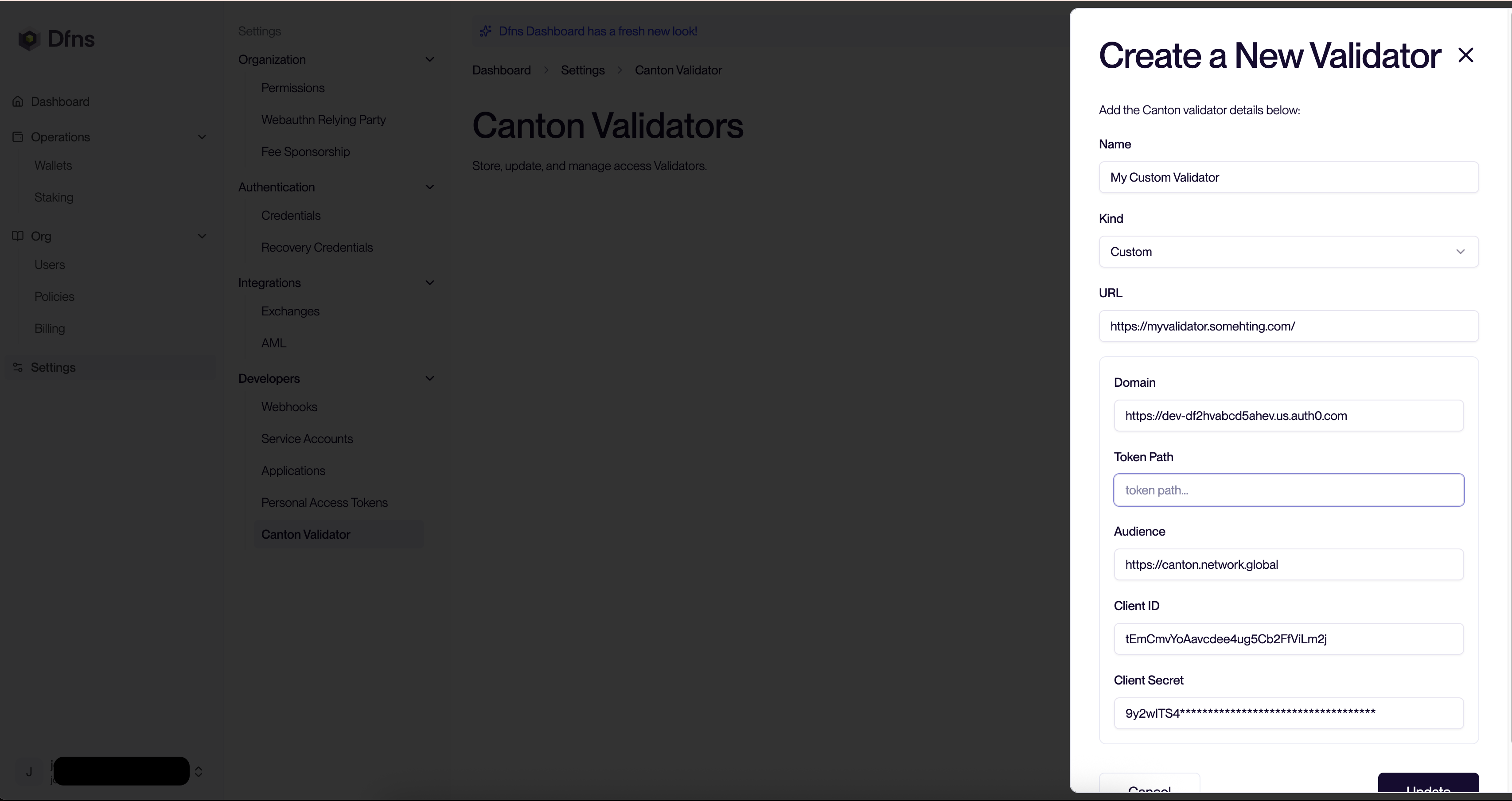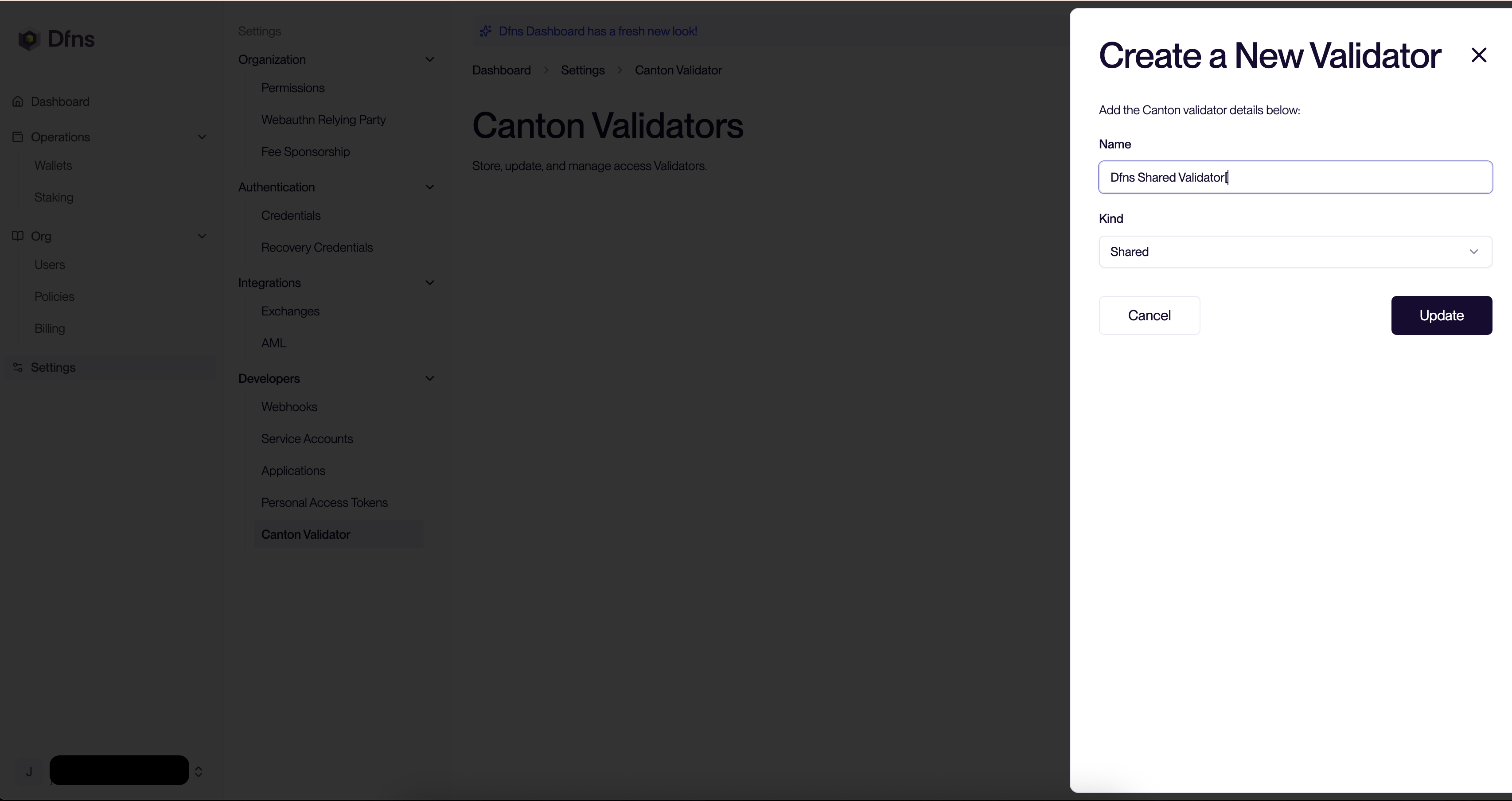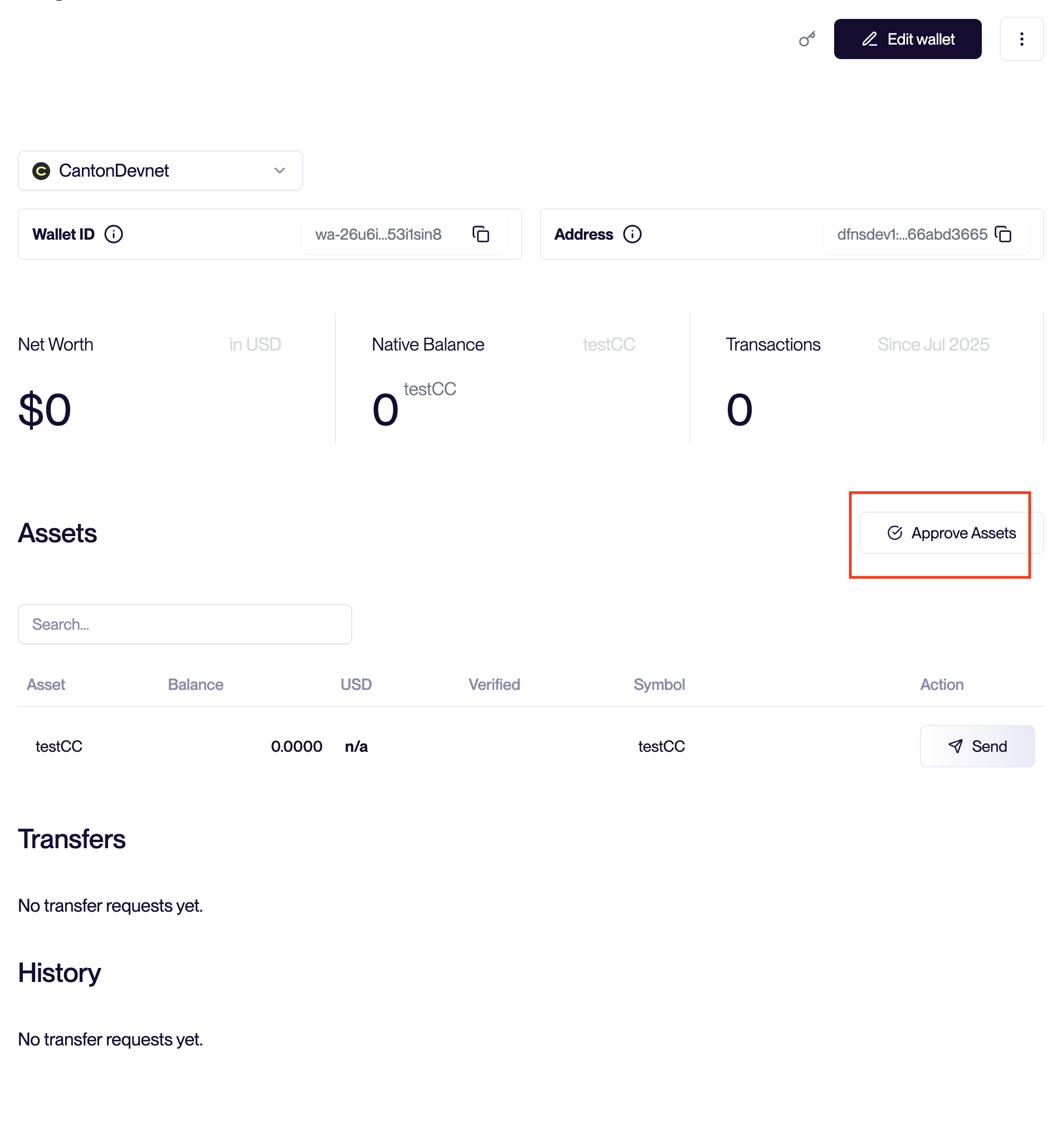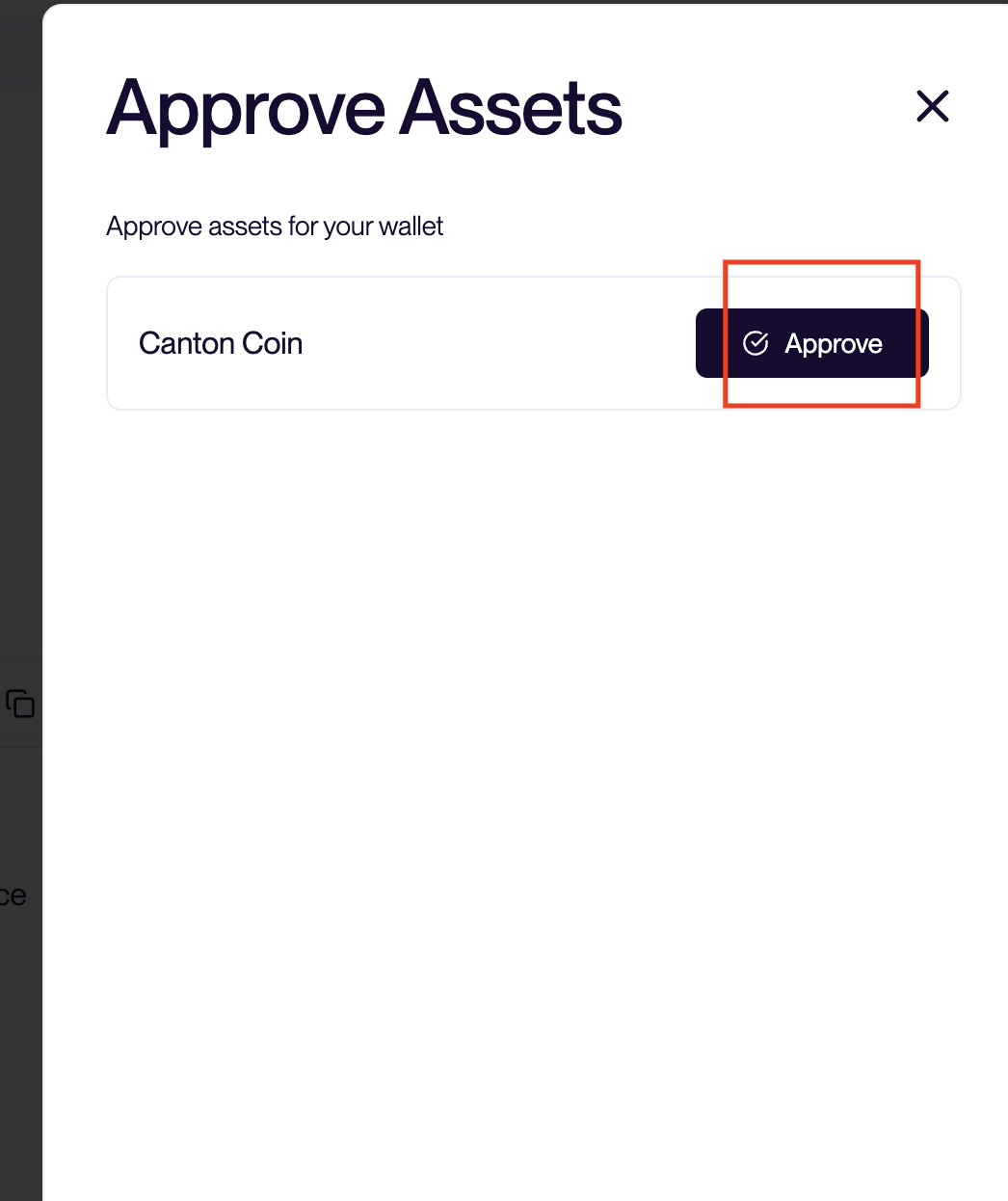The Canton Network is a speciality chain that requires a dedicated activation by Dfns teams.Please raise a support request indicating your organization id so we can activate it for you.
1/ Setup a Canton validator
Dfns offers two options for interacting with the Canton Network:Option 1: Use Dfns’ shared validator
Option 1: Use Dfns’ shared validator
Option 2: Connect your own validator (BYOV)
Option 2: Connect your own validator (BYOV)
If you are running your own validator, then you can connect it to Dfns over API (see details here ) or via the Dashboard. Once connected, you can create secure wallets linked to your validator. There is no extra setup needed on your validator side.We need several information to be able to connect to your validator:
You will always earn the rewards associated with the validator in the native wallet on that validator.We recommend configuring a automated sweep into a separate Dfns-secured Canton wallet to ensure your coins are safe. See an example configuration here.
- The validator URL: we expect to be able to call the validator External Signing API, for instance
$URL/api/validator/v0/admin/external-party/topology/generate. See the underlying calls details here. The calls will be originating from our IP addresses (see dfns-environments) - The validator’s OAuth2 authentication parameters: this is how we will authenticate into your validator. You should have setup authentication already (see details here), you can reuse the same Application details. For convenience you can find some examples with some common providers on the API page
- Domain: your OAuth2 tenant domain. Provided by your auth provider.
- Token Path: token endpoint from your authorization provider. We will call this endpoint on your tenant domain (i.e.:
<domain>/<token path>) - Audience: the audience your configured on your auth provider. It is suggested to start with
https://canton.network.global. - Client ID: The client id from your auth provider for this application.
- Client Secret: The client secret from your auth provider for this application.
- The Ledger API URL: URL to access the Ledger JSON API and call endpoints such as
/v2/state/ledger-end,/v2/state/active-contracts,/v2/parties/participant-id,/v2/interactive-submission/prepare,/v2/interactive-submission/execute,/v2/commands/completions. See the underlying details here. The calls will be originating from our IP addresses (see Dfns Environments) - The Ledger OAuth2 authentication parameters: this is how we will authenticate to your ledger API. This will usually use the same parameters as for the validator.

Canton validators support a limited number of wallets. You can connect several validators to your Dfns account.
2/ Setup a Canton Wallet
Create a Canton wallet
Create a Canton wallet via the dashboard Wallets page or via the Create Wallet API endpoint.At this stage, the wallet has a key but is not yet registered on any validator. The wallet address will not have a prefix and the wallet cannot be used for transactions yet.
Activate the wallet on a validator
Activate the wallet by registering it on a validator using the Activate Wallet endpoint, specifying the Via the Dashboard: After creating a Canton wallet, the dashboard will prompt you to select a validator and activate the wallet.Once activated, the wallet address will have its full prefix and can be used for transactions.
validatorId of the validator you want to use.Via API:Transfers
Use the Transfer Asset endpoint for Canton transfers:- Native Canton Coin: Use
kind: Native - CIP-56 tokens: Use
kind: Cip56withoffer: true(see below)
CIP-56 tokens (transfer offers)
CIP-56 tokens (utility tokens on Canton) work differently from most blockchains. Direct transfers are not supported for utility tokens - you must create a transfer offer that the recipient accepts.The only exception is transferring to yourself, which does not require an offer.
Managing offers
| Endpoint | Description |
|---|---|
| List offers | View pending transfer offers for a wallet |
| Get offer | Get details of a specific offer |
| Accept offer | Accept an incoming transfer offer |
| Reject offer | Reject an incoming transfer offer |
Expired offers
Transfer offers expire after 24 hours by default. However, expired offers do not automatically transition to Failed - the funds remain locked until either party takes action to unlock them (recipient rejects, or sender withdraws).Canton limitations
| Limitation | Value |
|---|---|
| Maximum UTXOs per wallet | 200 |
| Wallets per validator | Limited (contact support for details) |
| Offer expiration (default) | 24 hours |



